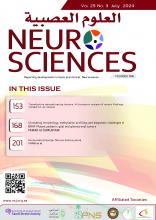29 April 2024 - In Madrid, the recent WHO training covered a wide range of topics on climate change and health, equipping participants with practical tools and insights drawn from diverse country experiences.
The topics covered included climate change vulnerability and adaptation (V&As) assessments, accessing climate finance, integrating health into Nationally Determined Contributions (NDCs), Health National Adaptation Plans (HNAPs), building climate-resilient and environmentally sustainable health systems and facilities, as well as measuring greenhouse gas (GHG) emissions.
Throughout the training sessions, emphasis was placed on peer-to-peer learning, fostering dynamic exchanges, and leveraging the expertise of local and regional experts. The training also drew on a Training of Trainers (ToT) approach to strengthen participants’ abilities to provide peer-to-peer training in the future.
The WHO training responded to an urgent need and increasing demand for training on climate change and health. Prior to the training, the top priority areas of work on CCH highlighted by participants were:
Making healthcare facilities more climate-resilient and environmentally sustainable.
Creating action plans for Low Carbon Sustainable Health Systems (LCSHS).
Improving climate-informed health surveillance and Early Warning Systems (EWS).
Post training feedback echoed a strong appreciation for the relevance and impact of the WHO CCH training to their work. Participants underscored the need for continued technical capacity development, including in emerging topics such as, Long-Term Low-Emission Development Strategies (LT-LEDS), action planning for low carbon sustainable health systems (LCSHS), CCH communication and advocacy, and assessing greenhouse gas emissions in healthcare facilities.
Overall, the WHO Training on Climate Change and Health in Madrid served as a vital milestone in advancing global efforts to advance climate change and health work.
Over 160 representatives from 77 countries participated in the WHO Training on Climate Change and Health (CCH), Madrid, 6–7 March 2024. Government officials, academic searchers, technical advisors and WHO regional and country staff enhanced their understanding of WHO-supported methodologies for building climate-resilient and low-carbon sustainable health systems and facilities.
Addressing capacity building needs on climate change and health
The WHO Climate Change and Health Unit continuously strives to develop and facilitate access to capacity building opportunities for the global health community and key stakeholders in climate change and health. In addition to the in-person Training on Climate Change and Health, it recently launched a Technical Webinar Series on Climate Change and Health and a new online course on Climate Change and Health developed in partnership with the WHO Academy. Past and future capacity-building opportunities can be accessed on the dedicated capacity building page.
Available from: https://www.who.int/news/item/29-04-2024-strengthen-global-capacities-on-climate-change-and-health--who-training-in-madrid
- Copyright: © Neurosciences
Neurosciences is an Open Access journal and articles published are distributed under the terms of the Creative Commons Attribution-NonCommercial License (CC BY-NC). Readers may copy, distribute, and display the work for non-commercial purposes with the proper citation of the original work.






